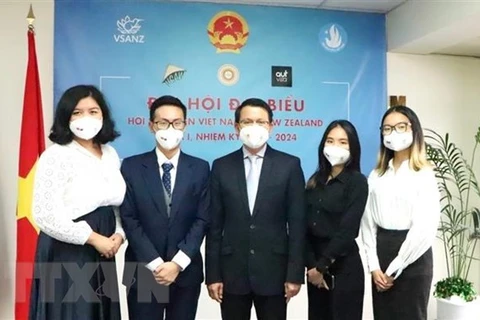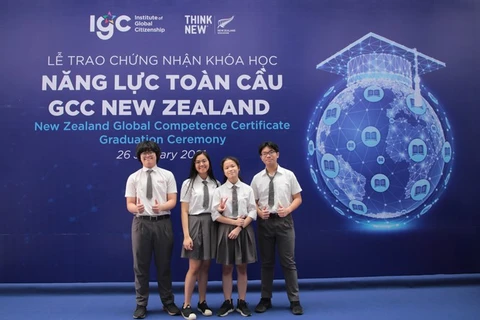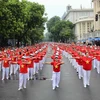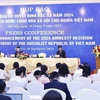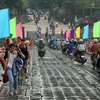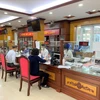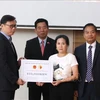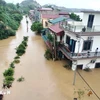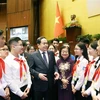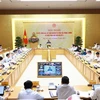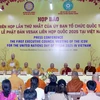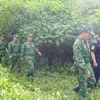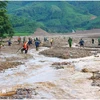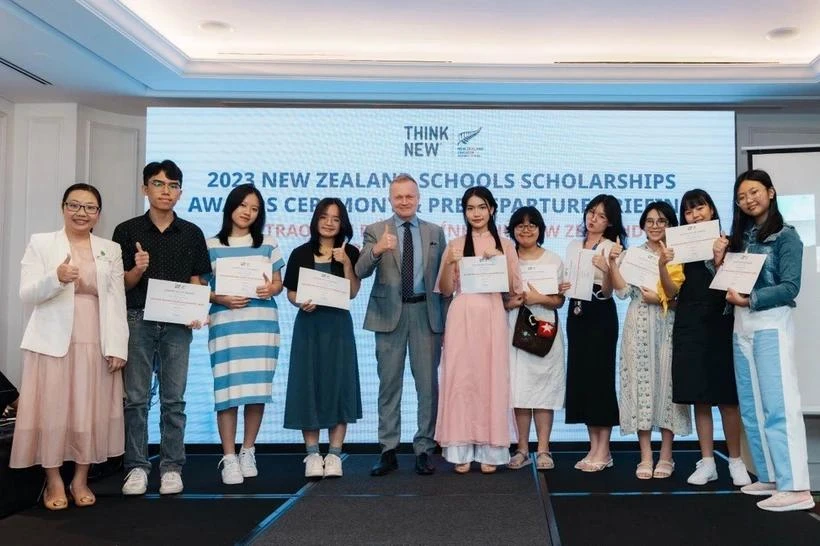
Hanoi (VNA) – New Zealand’s universities are offering flexible admissions requirements and criteria, coupled with diverse educational pathways in a concerted effort to attract more Vietnamese students.

This new initiative is designed to make higher education in New Zealand more accessible to Vietnamese students and to enhance their chances of success in the global academic environment.
Education New Zealand on August 6 announced that several universities in the country have introduced new flexible mechanisms regarding entry requirements and added a variety of study routes for Vietnamese students. This move is intended to streamline the admission process and provide students with more options, making it easier for them to pursue higher education in New Zealand.
The new admission policies are particularly beneficial for Vietnamese students aiming to study in New Zealand, which boasts eight globally ranked universities, all within the top 500 according to the QS World University Rankings 2025.
Prominent universities providing select admissions include the University of Canterbury (Christchurch), Massey University (Auckland, Palmerston North, and Wellington), the University of Otago (Dunedin), and the University of Waikato (Hamilton).

One significant change is the acceptance of predicted scores from the International Baccalaureate (IB) and A-Level (Cambridge Advanced) programmes. These predicted scores will now be considered for unconditional offers, allowing students to secure their places earlier without waiting for final exam results.
This early admission process is a game-changer, as it enables students to apply for both of New Zealand's primary intake periods in February and July with greater confidence. Once accepted, students can proceed with their student visa applications and start preparing for their academic journey in New Zealand.
Furthermore, the University of Canterbury, Massey University, and the University of Otago are now accepting applications based on Grade 12 transcripts with a minimum Grade Point Average (GPA) of 8.0. This is a departure from the previous requirement where students had to wait for their high school graduation exam results before applying. This change significantly speeds up the admission process, allowing students to finalise study plans earlier.
However, to complete the admission process, students still need to submit their final exam results to confirm that they meet the official entry requirements. For those following the IB or A-Level programmes, this means ensuring their final scores align with the university’s standards. For students completing the Vietnamese national high school programme, passing the graduation exam is necessary. All required documents must be submitted within the specified deadlines set by the universities.

In addition to flexible admissions criteria, New Zealand universities are offering a range of new educational pathways, catering to the individual needs of students and helping them save both time and money.
Typically, most undergraduate programmes in New Zealand last three years, except for certain fields such as engineering, medicine, and law. However, to provide students with more tailored educational options, New Zealand universities have introduced multiple study routes, each with its own advantages in terms of duration, qualifications, and entry requirements.
For instance, instead of waiting until they complete Grade 12, Vietnamese students who have finished Grade 11 can enroll in foundation programmes in New Zealand and then transition directly to university. This pathway offers an accelerated route to higher education, allowing students to enter university earlier than the traditional timeline.
Additionally, students who have completed Grade 12 but do not meet the GPA requirements for direct university admission can still pursue higher education in New Zealand. They can opt for foundation programmes or Diploma courses. A Diploma programme typically lasts one year and is equivalent to the first year of university. Upon completion, students are awarded a Diploma certificate, which qualifies them to enter the second year of an undergraduate programme, ensuring they stay on track to complete their bachelor’s degree within the standard time frame.
For postgraduate students, the Pre-Master’s programme offers a bridge for those transitioning from college or undergraduate studies in Vietnam to master’s programmes in New Zealand. This pathway ensures that students are adequately prepared for the academic rigors of graduate-level study.
Moreover, several joint programmes between New Zealand universities and Vietnamese institutions offer students the opportunity to gain international education while significantly reducing costs. These programmes provide a strong foundation in a global academic environment, preparing students for further study or careers worldwide.
New Zealand’s universities are committed to providing Vietnamese students with a wide range of educational opportunities. By offering flexible admissions and diverse pathways, these institutions are not only making higher education more accessible but also ensuring that students have the resources and support they need to succeed in their academic and professional endeavours./.
